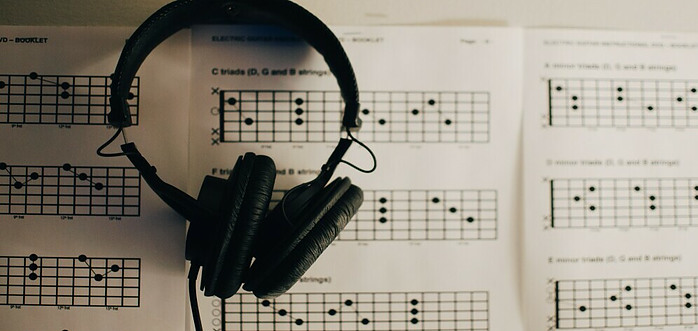Introduction to Music Meditation: Harmonizing Body and Mind
Overview of what music meditation is and its historical roots
Music meditation is a practice that involves using music as a tool to help achieve a meditative state of mind. This form of meditation has been used for centuries in various cultures around the world.
The historical roots of music meditation can be traced back to ancient civilizations, the Greeks for example, who used music as a form of therapy to heal the body and mind. In Eastern traditions, Hinduism and Buddhism for example, music has been used as a means of meditation to aid in relaxation and spiritual growth. In short, the benefits of music meditation have been familiar to every age and culture.
Today, music meditation is widely practiced and has been shown to have numerous benefits including reducing stress, improving focus and promoting a sense of well-being. It is often used in conjunction with other forms of meditation such as mindfulness and breath awareness.
Explanation of how music meditation acts as a bridge between physical and emotional wellness

Music meditation is a powerful tool that acts as a bridge between physical and emotional wellness. The soothing and calming effect of music has been known to reduce stress, anxiety and depression which are all common barriers to achieving a state of emotional well-being.
By listening to music during meditation individuals can experience a deep sense of relaxation and inner peace which can have a positive impact on their emotional health. Additionally, music has the ability to evoke strong emotions and memories which can help individuals process and release pent-up emotions leading to a greater sense of emotional balance.
On the physical side music meditation can help lower blood pressure, reduce muscle tension and improve overall physical health.
The combination of these physical and emotional benefits makes music meditation a valuable practice for achieving holistic wellness.
By incorporating music into their meditation practice individuals can experience a harmonious connection between their physical and emotional well-being leading to a greater sense of overall health and happiness.
Introducing the concept of music therapy and its recognition in the wellness community

Music therapy is a growing field within the wellness community, utilizing the power of music to address physical, emotional, cognitive and social needs. It is a well-established and recognized form of therapy with research showing its effectiveness in a variety of settings including hospitals, schools and rehabilitation centers.
Music therapists are trained professionals who use music interventions to achieve individualized goals and objectives within a therapeutic relationship. These interventions can include listening to music, creating music, singing and playing instruments.
Music therapy has been shown to be beneficial for individuals of all ages and abilities including those with mental health issues, developmental disabilities and chronic pain. It can help reduce stress, improve mood and enhance overall well-being.
As the recognition of the impact of music therapy continues to grow, more and more people are turning to this form of therapy as a way to improve their quality of life. Its ability to address a wide range of needs and its non-invasive nature make it an attractive option for those seeking alternative or complementary forms of treatment.
With ongoing research and advancements in the field music therapy is poised to become an increasingly important aspect of the wellness community.
The Symphony of Physical Benefits: How Music Meditation Enhances Health
The influence of music meditation on the nervous system and stress reduction

Music meditation has been the subject of numerous studies in recent years with researchers seeking to understand its impact on the nervous system and its potential for stress reduction. The results of these studies have been promising suggesting that music meditation can indeed have a significant influence on the nervous system.
For example, a study published in the Journal of Alternative and Complementary Medicine found that participants who engaged in music meditation showed a decrease in levels of cortisol, a hormone associated with stress, as well as an increase in levels of serotonin, a neurotransmitter linked to feelings of well-being and happiness.
Furthermore, research has also shown that music meditation can have a calming effect on the autonomic nervous system leading to a reduction in heart rate, blood pressure and respiration rate.
These findings suggest that music meditation may be a valuable tool for managing stress and promoting overall well-being. As such, further research into the mechanisms underlying the influence of music meditation on the nervous system is warranted, with the potential for the development of new therapeutic interventions for stress-related disorders.
Improvements in heart rate, blood pressure, and respiratory patterns through rhythmic entrainment

In recent years, there has been a growing body of research that supports the idea that rhythmic entertainment, such as music and dance, can have a significant impact on improving heart rate, blood pressure and respiratory patterns.
Studies have shown that engaging in rhythmic activities can lead to a decrease in heart rate and blood pressure as well as an improvement in respiratory patterns. This can be attributed to the fact that rhythmic entertainment has the ability to induce a state of relaxation and reduce stress, which in turn can have positive effects on cardiovascular and respiratory health.
Furthermore, the rhythmic nature of activities like dancing or drumming can also lead to an increase in physical activity which can have additional benefits for heart health.
As such, the findings from these studies suggest that incorporating rhythmic entertainment into one’s lifestyle can be a valuable strategy for improving overall cardiovascular and respiratory health. This has important implications for individuals who may be at risk for cardiovascular or respiratory conditions, as well as for healthcare professionals who are looking for alternative and complementary approaches to traditional treatment methods.
Overall, the evidence supporting the positive effects of rhythmic entertainment on heart rate, blood pressure and respiratory patterns is promising. Further research in this area could lead to the development of new interventions and therapies for individuals with cardiovascular and respiratory conditions.
The role of music in pain management and its potential to reduce chronic pain perception

Music has long been recognized for its potential to alleviate pain and discomfort. Studies have shown that listening to music can have a positive impact on pain management particularly in the context of chronic pain. The soothing and distracting effects of music can help reduce the perception of pain making it a valuable tool in managing chronic pain conditions.
Furthermore, music has been found to activate certain brain regions involved in the processing of pain leading to a decrease in pain perception. This suggests that music may not only provide temporary relief from pain but also have a long-term impact on how individuals perceive and cope with chronic pain.
Additionally, music therapy has been increasingly utilized in clinical settings as a complementary approach to traditional pain management techniques with promising results. The use of music in pain management has the potential to enhance the overall quality of life for individuals suffering from chronic pain offering a non-invasive and non-pharmacological alternative to traditional pain management strategies.
As research in this area continues to expand the role of music in pain management is gaining recognition as a valuable and effective intervention for individuals living with chronic pain.
For a more in-depth coverage of the link between mindfulness and physical health see the post on this topic: Mindfulness and Physical Health
Harmonizing Emotions: The Psychological Serenity of Musical Mindfulness
Music meditation as a tool for mood regulation and managing anxiety

Music meditation has been increasingly recognized as an effective tool for mood regulation and managing anxiety. The combination of music and meditation provides a powerful means of calming the mind, reducing stress, and promoting emotional well-being. The soothing and rhythmic nature of music has a profound impact on the brain helping to slow down racing thoughts and induce a state of relaxation.
When combined with meditation techniques such as deep breathing and mindfulness music can further enhance the benefits of the practice allowing individuals to gain greater control over their emotions and find inner peace. Moreover, the use of music in meditation can help individuals to focus their attention, diverting their minds from negative thoughts and worries and allowing them to enter a state of tranquility.
As a result, music meditation can serve as a valuable tool for individuals seeking to alleviate symptoms of anxiety and improve their overall mental health. Its accessibility and versatility make it an appealing option for individuals of all ages and backgrounds, offering a holistic approach to emotional well-being.
As research continues to uncover the numerous benefits of music meditation its potential as a therapeutic tool for mood regulation and anxiety management becomes increasingly evident.
Exploring the impact on depression and using music as a form of emotional expression

Depression is a serious mental health condition that affects millions of people around the world. It can have a significant impact on an individual’s emotional well-being leading to feelings of sadness, hopelessness and despair. In recent years, there has been growing interest in exploring the use of music as a form of emotional expression for individuals struggling with depression.
Music has the ability to evoke powerful emotions and can serve as a means of connecting with and expressing one’s innermost feelings. Research has shown that listening to or creating music can have a positive impact on mood and can provide a sense of comfort and solace for those experiencing depression.
Additionally, music therapy has been found to be an effective treatment option for individuals with depression offering a non-invasive and accessible way to address emotional distress. By providing a means of self-expression and emotional release music can play a valuable role in helping individuals cope with the challenges of depression and improve their overall well-being.
As such, further exploration of the impact of music on depression is warranted as it has the potential to offer new insights and innovative approaches to supporting individuals struggling with this debilitating condition.
How music can enhance mindfulness practices and contribute to overall emotional resilience
Music has long been recognized as a powerful tool for enhancing mindfulness practices and contributing to overall emotional resilience. The rhythmic and melodic elements of music have the ability to capture and hold our attention allowing us to focus on the present moment and cultivate a sense of awareness.
In addition, the emotional and expressive qualities of music can evoke a wide range of feelings and sensations providing a rich and immersive experience that can deepen our connection to our emotions and inner world. Moreover, the therapeutic effects of music on the brain have been extensively studied, with research showing that listening to music can reduce stress, anxiety and depression while also promoting relaxation and a sense of well-being.
When integrated into mindfulness practices music can serve as a supportive and enriching element that helps individuals stay grounded, centered and resilient in the face of life’s challenges.
By engaging with music mindfully individuals can develop greater emotional regulation, self-awareness and compassion. Ultimately this can lead to a more balanced and resilient emotional state. Accordingly, the integrating music into mindfulness practices can be a valuable and effective way to enhance emotional well-being and cultivate greater resilience in the face of life’s inevitable ups and downs.
Tuning Into Practice: Integrating Music Meditation Into Your Daily Routine
Practical tips for incorporating music meditation into everyday life

Music meditation is a powerful and accessible tool for relaxation and stress relief that can be easily incorporated into everyday life. One practical tip for incorporating music meditation into your daily routine is to create a dedicated space for your practice. This could be a quiet corner of your home or even just a comfortable chair where you can sit and listen to calming music without distractions.
Another tip is to set aside a specific time each day for your music meditation practice whether it’s first thing in the morning, during your lunch break or before bed. Consistency is key when it comes to reaping the benefits of music meditation, so finding a regular time that works for you is important.
Additionally, consider experimenting with different types of music to find what works best for you. Some people find that classical music or nature sounds are most effective for relaxation while others may prefer ambient or instrumental music. Whatever you choose, make sure it’s something that helps you feel calm and centered.
Finally, don’t be afraid to use music meditation as a tool to enhance other activities in your daily life, such as yoga, exercise or even just while doing household chores. By incorporating music meditation into your everyday routine you can experience the many benefits of this practice and improve your overall well-being.
Guidelines for choosing the right type of music for personal meditation goals

When it comes to choosing the right type of music for personal meditation goals, there are a few guidelines that can help you make the best decision.
First, consider the goal of your meditation practice. Are you looking to relax and de-stress or are you aiming to achieve a deep state of concentration and focus? If relaxation is your goal you may want to choose music that is slow-paced with gentle melodies and soothing tones. On the other hand, if you are seeking to enhance your concentration you may opt for instrumental music with a steady rhythm and minimal lyrics.
Another important factor to consider is the impact of the music on your emotions. Some people find that certain types of music can evoke strong emotions which may not be conducive to a peaceful meditation experience. It’s important to choose music that resonates with you personally and helps you to feel calm and centered.
Additionally, consider the length of your meditation session. If you are planning a longer meditation you may want to select music that has a gradual build-up and a calming resolution to help sustain your focus throughout the practice.
Lastly, it’s important to experiment with different types of music and pay attention to how each one affects your meditation experience. By being mindful of these guidelines and listening to your own preferences you can choose the right type of music to support your personal meditation goals.
I hope you have enjoyed this content. If you have comments or questions I’d love to hear from you in the comments section. Finally, if you would like to be notified of updates please enter your name and best email in the form below.

Grant Rayner
Hi Grant,
Your website has been a delightful discovery for me, offering rich, insightful content spanning a diverse array of health-related topics. The depth and breadth of information you provide are genuinely commendable, and I appreciate the effort you’ve invested in creating such a valuable resource.
On a more personal level, I wanted to share my enthusiasm for the role of music in my daily routine. For me, it goes beyond being a mere pastime; it’s a vital companion that intricately weaves itself into the fabric of my day. Whether I’m navigating the challenges of work or finding peace in moments of relaxation, music consistently enhances my overall experience.
I also wanted to share a personal anecdote about my son who was born 11 years ago with a weight less than desired by the doctors. During that time, I researched music therapy and, based on the studies I found, placed some classical songs in his crib to help him through the first few days. He progressed well, just as the studies suggested he would.
Thank you once again for the wealth of information your platform provides. I look forward to continued exploration and discovery on your site.
Cheers,
Dean
Hey Dean! I so appreciate your comments! Music has always been a part of my life and, as you know, it’s therapeutic! Music for babies in the womb gets a response from them! Thanks for sharing the story of your son. That is truly inspiring! Hope you’re having an awesome day!
Grant